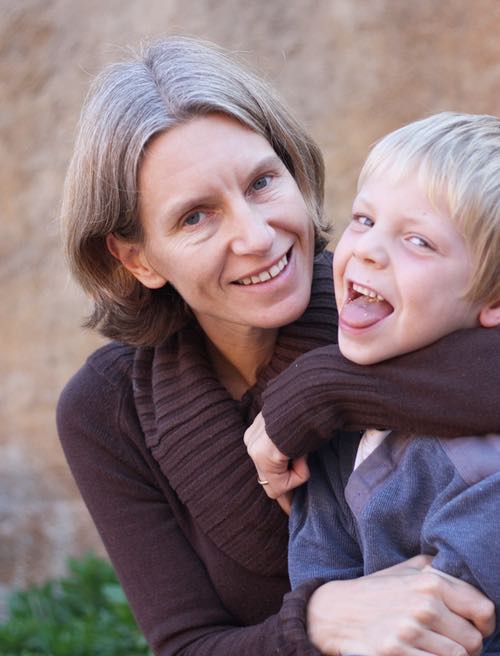When Sebastian was very tiny, I used to call him the 'runt' of the family. Not because he was particularly little (he's always been bigger than Celeste) but because at only a few weeks old he was racking up a long list of medical problems. First there was the being (a little bit) premature and needing help breathing, tongue tie, GORD and then one day I found a lump in his testicle. Oh joy, a hernia.
What is a hernia? Why do hernias occur in babies?
There are different types of hernias. Sebastian had an 'indirect inguinal hernia'. A hernia is caused when there is a weakness in the muscle wall and the bowel behind it pokes through. In the case of small boys, this is caused when they are inside their mummies tummies, the testicles develop in the abdomen and descended down into the scrotum. This can leave a weakness and result in a hernia. They are more common in premature babies.
Symptoms and dangers of hernias in babies
The hernia looked like a huge scrotum. When he cried it would stick out lots (due to the increased pressure in his abdomen.) I was able to push it back in when he was quiet (there is a bit of a nack to it). A hernia won't go away by itself and needs an operation to sort it out. Also, there is a small risk that it could be come 'incarcerated' meaning that it gets stuck out and can't be pushed back in. This can result in the blood supply to the bowel inside getting damaged, which can lead to the bowel tissue dying (a 'strangulated hernia'). This is rare, but a serious problem and needs operating on straight away.
Luckily I knew what it was so I trundled down to the primary care centre and showed it to our now very familiar doctor. She agreed with me and referred him to the surgeons in Girona. An appointment would arrive in the post.
Treatment of a hernia in a baby is operating
A few months later we went to meet our surgeon. Now, I know not all surgeons live up to the stereotype of pointing to a patient, muttering and walking away. In fact, the majority of surgeons that I have had the pleasure of working with have been friendly people with good communication skills. I don't think they teach communication skills at spanish medical school, or at least, this surgeon hadn't been to his classes.
He had a quick feel of the testicle, said 'sign here', told me he'd need some blood tests before the operation and dismissed us. So much for 'informed consent' (in the UK, doctors are required to explain what they're going to do, why they're going to do it and the risks and side effect associated with the procedure.) As I knew what they were going to do, I asked more practical questions like 'did we have to stay overnight as I had twins that I was breast feeding so that might be a bit of a problem.'…
The day of my baby's hernia operation
The big day finally arrived. Poor little Sebastian had to be starved most of the day. By the time of the operation, he was beside himself. Everyone was friendly. The anaesthetist even took a few minutes to talk to me. I must have worn a path in the floor pacing backwards and forwards. Eventually, he was out and in recovery (the only baby in a room full of adults).
Luckily, we were allowed out that day. I think having the twins, they were as keen to get rid of us as we were to leave. We had a review appointment a week or so later which was fine and we were discharged.
After my baby's hernia operation
I was really glad it was over and he was all fixed up. I think before the operation he'd been in a bit of discomfort when the hernia stuck out (and it made a horrible gurgling noise as the bowel contents moved around.) Now at 9 months old, he's as happy as Larry and his scar is hardly visible again.
Thank you once again, catalan health care!

 Feeding Toddlers.
Feeding Toddlers. Would you like your kids to eat more healthily? Check out the book!
Would you like your kids to eat more healthily? Check out the book!